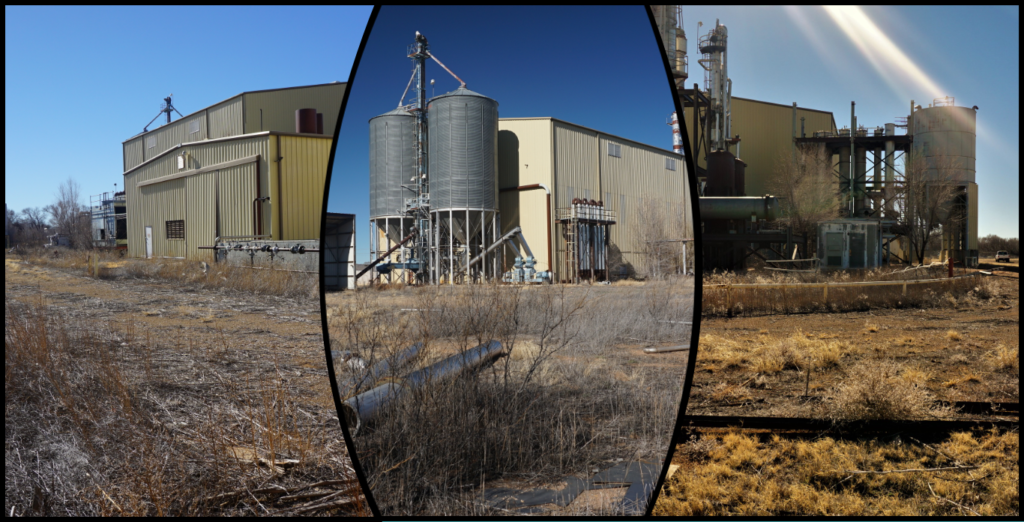
The men behind Tucumcari Bio-Energy Company are retooling an abandoned ethanol plant in this rural New Mexico town to turn manure from nearby dairies into methane for compressed natural gas vehicle fuel, food-grade carbon dioxide, and sterilized solid and liquid fertilizer.
After several years of foundational work, the startup owns the plant property. It has a business plan, engineering design, and environmental impact statement. It also qualified for $1.8 million in federal funds through the New Markets Tax Credit Program, but company vice president Steve Morgan and president Robert Hockaday haven’t heard when they will receive that money.
“We’ve waited so long,” Hockaday said. “We’re ready to go.”
When it arrives, the company can order equipment, modify the plant’s existing infrastructure and attract more private investors to get the multitiered project operational within a year.
Synergistic Solutions
New Markets Tax Credit Program helps businesses that need significant capital to purchase expensive commercial equipment or to develop property in ways that benefit economically depressed New Mexico communities like Tucumcari.
Hockaday, a former engineer at Los Alamos National Laboratory, started Tucumcari Bio-Energy Company as a spinoff of Energy Related Devices, a research and development company he started in 1987 to invent energy-generating technologies.
A resident of Tucumcari, Hockaday saw potential in the abandoned ethanol plant to help area farms and dairies by providing a place where farmers can turn waste into pipeline-quality methane and other marketable products. Besides methane, carbon dioxide and fertilizer, the process to be used by Tucumcari Bio-Energy also captures hydrogen, which can be sold as fuel. And other areas of the property will be available for grain storage and greenhouse operations.
The overarching goal, according to the vision statement on the company’s website, is to “[e]nable agricultural communities to thrive and be sustainable by creating and operating new systems in agriculture to solve problems of energy, food quality, diversity, waste, pollution, and water scarcity.”
In the long term, Morgan and Hockaday hope their plant will be a template for other entrepreneurs who want to turn shuttered ethanol plants in the Southwest and Midwest into facilities that can turn biological waste into valuable, renewable products.
Matching Investors, Projects
Funds provided through the New Markets program are allocated in the form of tax credits to community development entities (CDEs)—in this case Finance New Mexico LLC, an entity formed by the New Mexico Finance Authority (NMFA; no relation to the Finance New Mexico project). The CDE matches funding with projects and “sells” the tax credits to private investors, who provide 25 percent of the needed capital.
The cash comes with low interest rates for borrowers and interest-only payments for seven years. It offers investors a way to reduce federal tax liabilities over seven years, and the credits can be resold to other companies. The New Mexico Finance Authority manages the program, maintains relationships with investors and reports to the Treasury Department on how credits have been distributed.
Since New Mexico began participating in this public-private partnership 13 years ago, the program has enabled numerous economically beneficial projects in New Mexico’s economically challenged communities.
Business owners who have secured 75 percent of project funding and qualify for the New Markets credits are encouraged to contact the NMFA, which can verify the project’s eligibility, match it with investors, allocate the credits and structure the loan. Most projects are in the $5 million to $10 million range.
NMFA allocates tax credits each quarter and solicits projects for rural New Mexico until credits are exhausted. Contact the application manager at NMTC@NMFA.net for detailed information. For more information about Tucumcari Bio-Energy, visit http://tucumcaribioenergy.com/
Article 663 by Sandy Nelson of the Finance New Mexico project team.
